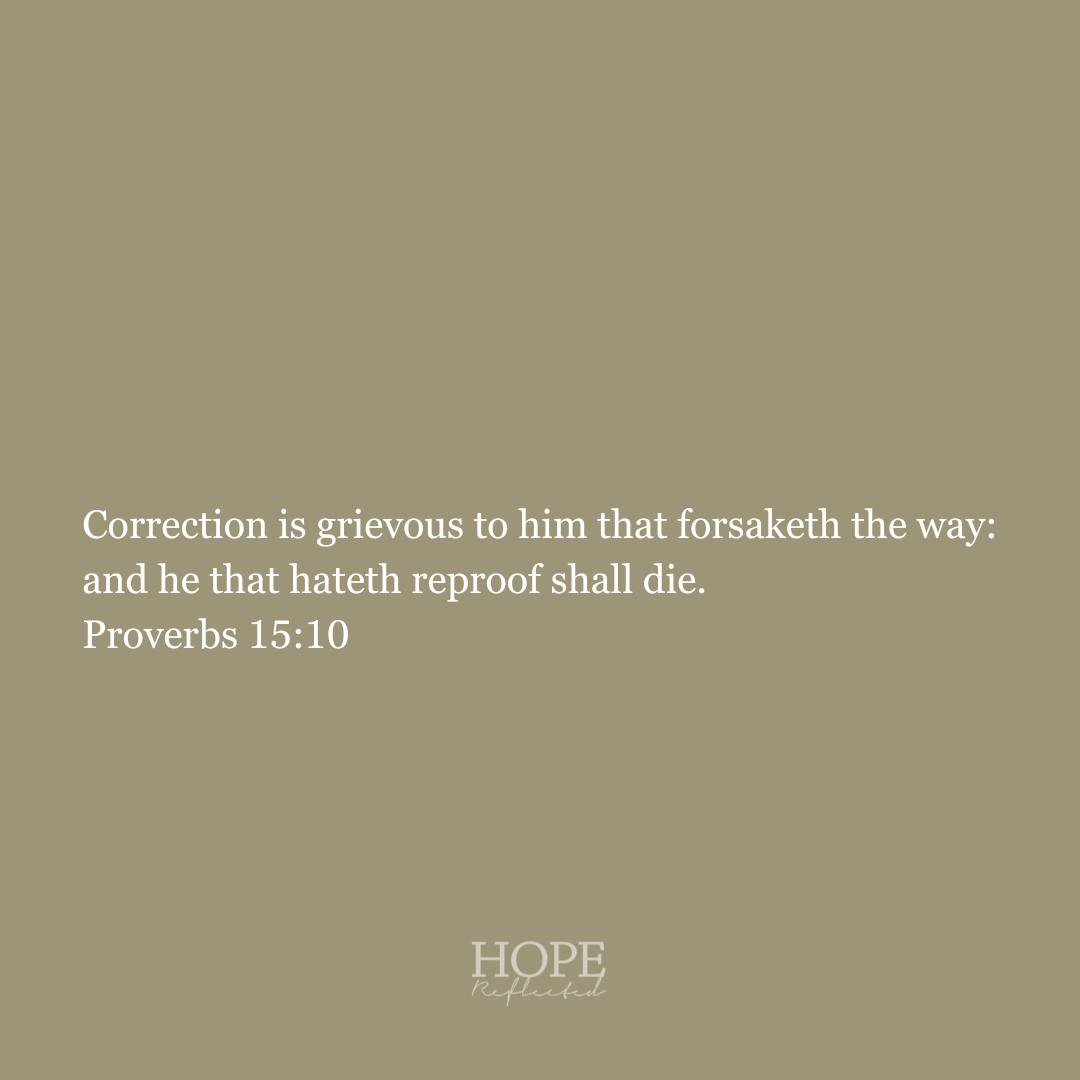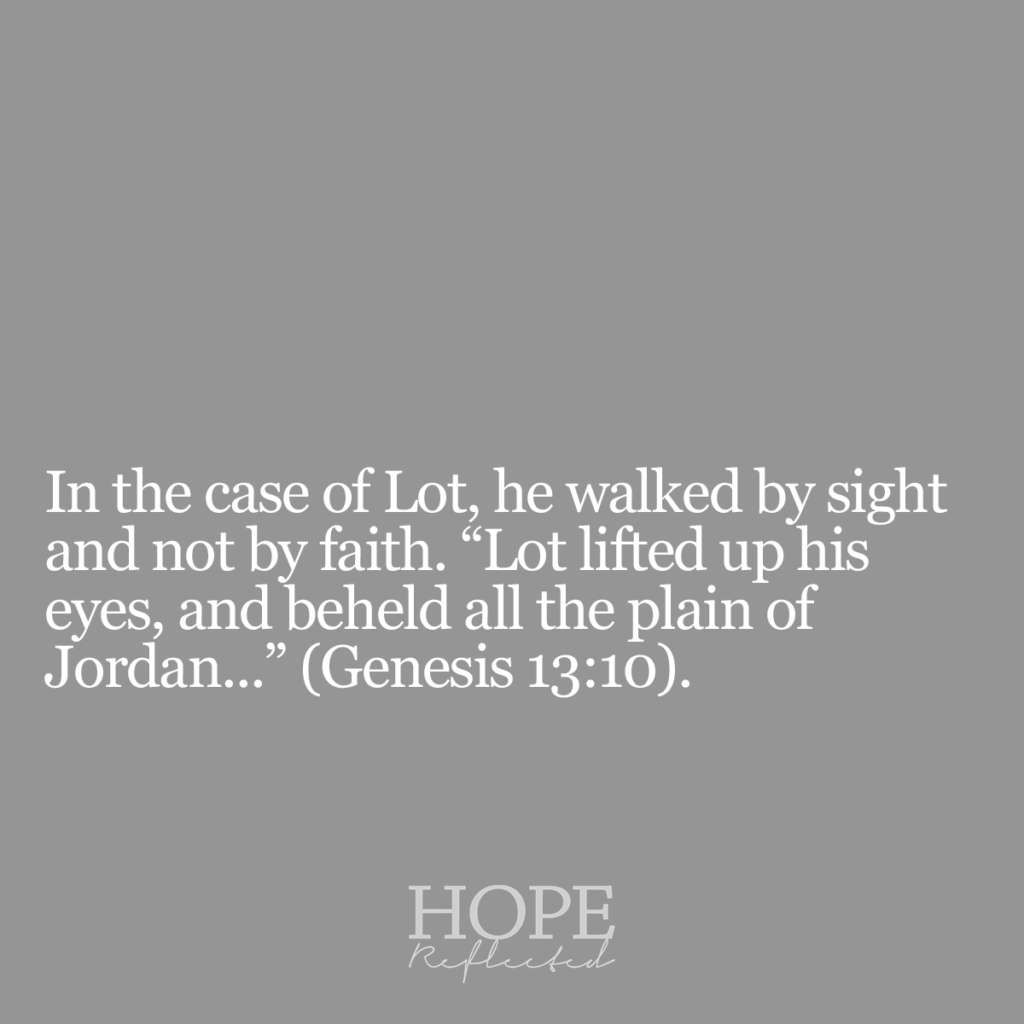Correction is grievous
Written by H, Posted in Christian Living, Published Work

“Correction is grievous unto him that forsaketh the way: and he that hateth reproof shall die.” Proverbs 15:10
A quick scroll of Facebook, Instagram, or Twitter shows us this verse in action; those unfamiliar with social media need only take a look around in the classroom, in the church, and sometimes even in our own homes.
Correction is grievous, or perhaps a better way to state it is that people don’t like being corrected. And it’s no wonder, because accepting correction means admitting we’ve done something wrong, and because of our pride, that’s very difficult for a lot of us.
Correction is for our good
“… he that hateth reproof shall die.” Solomon may have sounded a bit dramatic here, but he was right. Think of it this way: At some point in each one of our lives, we’ve all had a tool or a toy that we’ve broken because we used it the wrong way.
Maybe out of excitement we neglected to read that our electric clippers were only meant for garden grasses and not small tree limbs, or because of youth and inexperience we genuinely didn’t know that driving our new remote control car off a cement ledge would smash it in pieces. Reading the instructions or listening to our parents could have prevented certain destruction.
The same can be said of us.
Correction—though usually painful and never pleasurable—is ultimately for our good, to save us from certain destruction.
What does the Bible say about it?
We read in Scripture that the person who hates correction is stupid (Proverbs 12:1), the person who ignores instruction hates himself (15:32), and people who despise wisdom and instruction are fools (1:7).
Stupidity, hatred, and foolishness are not good characteristics.
On the other hand, the person who loves discipline loves knowledge (Proverbs 12:1), the person who accepts correction gains intelligence (15:32), and whoever listens to instruction is in the way of life (10:17).
What is “the way” that can be either followed or forsaken?
It is the law of God (Ps. 119:1), the way everlasting (139:24), the path that leads to real life (Matt. 7:14).
Jesus Himself said that “narrow is the way, which leadeth unto life, and few there be that find it” (Matt. 7:14). Broad is the way that leads to destruction, and this is why correction is grievous to anyone who forsakes God’s way. The wide gate and the broad way may be filled with fun and seem so alive, but the strait gate and the narrow way is the actually only way to truly find life.
Martin Luther said that “A pastor who fails to deal with sin is like a doctor who fails to deal with illness. You better find another one.” We can’t live our lives fully if we are only pursuing after those things which bring us pleasure.
“We must allow the Word of God to correct us,” A.W. Tozer wrote, “the same way we allow it to encourage us.” Paul didn’t tell us that Scripture is to make us feel good, but rather that it is “profitable for doctrine, for reproof, for correction, for instruction in righteousness” (2 Tim. 3:16).



![False friends or counterfeit kindness; whatever you want to call it, the world is filled with people who will say one thing to your face and then another behind your back; people who will woo you in order to get something from you.
It’s sad, but it’s true.
The Bible provides us with examples from Joab to Judas, and yet, we’re surprised when we find ourselves deceived and hurt by someone else.
So what are some of the hallmarks of a true friend?
You can read more about this on hopereflected.com [Link in profile]
.
.
.
#friends #friendship #kindness #counterfeitkindness #hurt #proverbs #truefriends #hopereflected #blog #blogpost](https://www.hopereflected.com/wp-content/plugins/instagram-feed/img/placeholder.png)